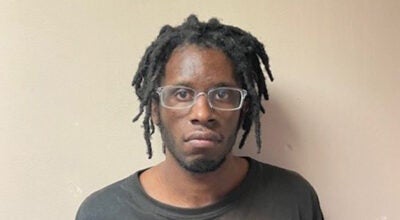Mississippi student’s lawsuit leads to change in state law
Published 6:18 am Saturday, May 8, 2021
Of all the bills passed into law by the Mississippi Legislature in 2021, one of them raised eyebrows.
House Bill 1312 swept through the Legislature by a combined 159-6 vote and was signed into law in April. The new law, which exempts certain beauty care providers from being required to obtain an esthetician license, is the result of a lawsuit filed by former Mississippi University for Women graduate student Dipa Bhattarai against the Mississippi State Board of Cosmetology. In 2019, the Mississippi Justice Institute filed the suit on behalf of Bhattarai, who argued the 600 hours of classroom training needed to attain a license, none of it related to her eyebrow threading practice, forced her to close her two eyebrow threading businesses in Columbus and Starkville.
The new law, authored by Rep. Jerry Turner (R-Baldwyn) is a result of a settlement reached by MJI and the Cosmetology Board.
“In order to resolve the lawsuit we had to get the law changed, which is something all parties agreed to do,” said MJI Director Aaron Rice, who represented Bhattarai in the case. “We agreed to exempt some of these niche beauty practices from the licensure requirement.”
The law applies to eyebrow threaders, makeup artists and those who perform eyelash extensions.
Although fairly new to the United States, eyebrow threading — a noninvasive method of removing unwanted hair, primarily eyebrows, involving the use of a small cotton thread wrapped around the hair to cut it at its base — has been practiced in parts of Asia for years.
Bhattarai learned the technique in her home country of Nepal and, while a student at The W, opened up eyebrow threading businesses in Columbus and Starkville in 2017 before the state forced her to close shop for lack of a license.
Bhattarai, 26, and now a student at Ole Miss, said the new law is more than a personal victory.
“I feel this is really good, not just for me, but for people who want to do something on their own,” Bhattarai said. “A lot of people are losing their jobs and want to create their own jobs. We should be making it easier for people to do that, not harder.”
Rice said it’s difficult to determine just how many practitioners of the services now exempt from licensing will be affected.
“I don’t have any firm figures, but I do know we received a lot of calls after we filed the suit,” Rice said. “A lot of the people in these kinds of niche services weren’t advertising because they were afraid they would be targeted and shut down.”
Rice said the lawsuit that led to the change in state law may lead the state to think twice before imposing what he called “irrelevant training” requirements for things like beauty services.
“We went through a similar thing with hair braiders in 2004,” Rice said. “Now, this. This should put the state on notice that this is a problem for them that they can’t defend in court.”
Bhattarai, who has reopened her eyebrow threading business in both Columbus and Starkville, hopes that’s the case.
“What I learned is that the Cosmetology Board has no clue of what’s going on,” she said. “So many new processes and techniques are evolving all the time, but our laws and regulations are still old school. You have to be aware of what’s going on, listen to what young people are saying, not just stick with what you did 20 years ago.”






